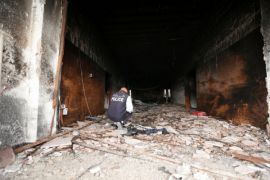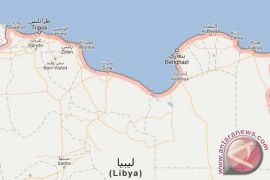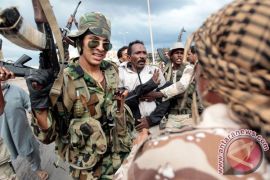Germany has opposed the Western bombing campaign in Libya, saying military intervention is not the best way to end Gaddafi`s four-decade rule, and has resisted NATO calls for broader support for its military action.
Visiting rebel capital Benghazi, Foreign Minister Guido Westerwelle defended Germany`s position, saying Berlin was determined to help oust Gaddafi but through peaceful methods.
"We didn`t change our mind. We think that Colonel Gaddafi has lost any (legitimacy) to speak for the people of Libya. ... The fact that we do not participate in the military intervention does not mean that we are neutral," he told a news conference.
"We decided not to participate with our own troops in this military intervention. We had our reasons for this. We respect those countries who decided in a different way. But we think we have the same goal."
At least five EU countries had earlier recognised the rebel National Transitional Council, based in Benghazi in eastern Libya.
Gaddafi`s government is entrenched in the capital Tripoli in western Libya.
"The national council is the legitimate representative of the Libyan people," Westerwelle said. Libyans listening to his address burst into applause after he made the remark.
Speaking alongside Westerwelle, rebel foreign minister Ali El-Essawi urged all nations to comply with a U.N. resolution authorising air strikes on Gaddafi positions to protect civilians but showed no dissatisfaction with Germany`s position.
"We understand the reasons for each country. For Germany,there is another role it can play to help Libyans to (achieve) their legitimate demands," he said.
Westerwelle, who was accompanied by International Development Minister Dirk Niebel and other government officials, said Berlin would help the rebels economically.
In a separate statement, Germany said it would provide an additional 7 million euros ($10 million) for emergency and interim aid to assist in stabilisation efforts.
"We have a fact finding mission in the country exactly to find out what is necessary and how we can support, especially the rebuilding of the country," he said.
"We think the real work will start after the time of Gaddafi. Then it is very crucial to rebuild the country and help the country so we can create a better future for the people in Libya." (*)
Editor: Kunto Wibisono
Copyright © ANTARA 2011



